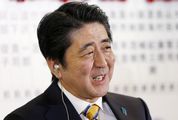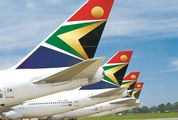Water security requires poor to pay too
by Dylan Strydom,
2015-11-12 05:53:12.0
IN 2010, the United Nations General Assembly acknowledged that access to water and sanitation should be a human right. However, access to water is as much about infrastructure as it is about notions of availability, quality and warrant, and this infrastructure is expensive. What makes infrastructure — and thus, indirectly, the resource — even more expensive is nonrevenue water.
The country is already threatened with scheduled water shedding.
The auditor-general’s January report noted that Durban was losing 237-million litres of water daily due to leaks, an annual revenue shortfall of more than R600m. Johannesburg loses an estimated R1bn in nonrevenue water annually; up to a third of all treated water is wasted before it reaches the consumer through leaks and illegal connections.
Despite these alarming figures, SA’s rate of nonrevenue water is slightly ahead of the curve globally. While some rural areas lose more than 70% of water, nonrevenue water in urban municipalities, where water is needed in high concentrations for residential and industrial use, is about 30%. Ironically, people in the world’s slums often pay a higher rate for access to water than high-income areas in those countries or in developed ones — some estimate that connecting to a water utility costs about six months’ income for poor households in urban Kenya.
In April, a study by the University of Denver Law Water Review estimated the total amount of nonrevenue water worldwide at 48.6-billion cubic metres, which could "meet the needs of almost 200-million people in the developed world".
Establishing water utilities and infrastructure only to see water lost or not paid for, thus initiating a cycle of continuous nonpayment, entitlement and inadequate funds for maintenance of the infrastructure, is pointless and self-defeating. That is why the International Water Association describes nonrevenue water as "one of the lowest-hanging fruits to improve the efficiency of water utilities around the world".
It sees three components in nonrevenue water: unbilled authorised consumption; apparent losses (water theft and metering inaccuracies); and real losses (from transmission mains, storage facilities, distribution mains or service connections).
Inevitably, it will be technology, not entrenched rights, that ensures water security for South Africans. The government has fully embraced this reality and is actively enhancing revenue collection at many municipalities through intelligent water metering devices that can be modified electronically in the field to implement a number of different metering-system options, such as finite or prenegotiated daily or monthly allowances, flat-rate billing, automated meter-reading and prepayment metering.
While a lack of skills and capacity in our municipalities plays a large part in poor water service delivery, far from being a technological backwater, SA is at the forefront of automated meter-reading, manufacturing domestically made water management devices that are Standard Transfer Specification Association-approved and using cellphone technology to perform the traditional water meter-reading function.
Two-way communicating smart meters are capable of detecting leaks and tampering, as well as remotely measuring and controlling the flow of water to individual consumers.
The same technology ensures that all stands can be visited within a local authority and comprehensive reports provided of the current state of the meter services, including the GPS co-ordinates of assets, as per the auditor-general requirements.
Some may feel that in a country with glaring income inequality, monitoring potential leaks and meter-tampering and clamping down on nonpayment for water is needlessly hurting the poorest, but if human rights are as much about equity as individual needs, it has to be done.
Protecting revenue from water is the only way to protect it as a long-term resource.
• Strydom is MD of MICROmega’s Sebata Municipal Solutions
A farm worker sits on a water tank as he supplies his livestock with water at a farm outside Utrecht, a small town in the northwest of KwaZulu-Natal. Picture: REUTERS/SIPHIWE SIBEKO
IN 2010, the United Nations General Assembly acknowledged that access to water and sanitation should be a human right. However, access to water is as much about infrastructure as it is about notions of availability, quality and warrant, and this infrastructure is expensive. What makes infrastructure — and thus, indirectly, the resource — even more expensive is nonrevenue water.
The country is already threatened with scheduled water shedding.
The auditor-general’s January report noted that Durban was losing 237-million litres of water daily due to leaks, an annual revenue shortfall of more than R600m. Johannesburg loses an estimated R1bn in nonrevenue water annually; up to a third of all treated water is wasted before it reaches the consumer through leaks and illegal connections.
Despite these alarming figures, SA’s rate of nonrevenue water is slightly ahead of the curve globally. While some rural areas lose more than 70% of water, nonrevenue water in urban municipalities, where water is needed in high concentrations for residential and industrial use, is about 30%. Ironically, people in the world’s slums often pay a higher rate for access to water than high-income areas in those countries or in developed ones — some estimate that connecting to a water utility costs about six months’ income for poor households in urban Kenya.
In April, a study by the University of Denver Law Water Review estimated the total amount of nonrevenue water worldwide at 48.6-billion cubic metres, which could "meet the needs of almost 200-million people in the developed world".
Establishing water utilities and infrastructure only to see water lost or not paid for, thus initiating a cycle of continuous nonpayment, entitlement and inadequate funds for maintenance of the infrastructure, is pointless and self-defeating. That is why the International Water Association describes nonrevenue water as "one of the lowest-hanging fruits to improve the efficiency of water utilities around the world".
It sees three components in nonrevenue water: unbilled authorised consumption; apparent losses (water theft and metering inaccuracies); and real losses (from transmission mains, storage facilities, distribution mains or service connections).
Inevitably, it will be technology, not entrenched rights, that ensures water security for South Africans. The government has fully embraced this reality and is actively enhancing revenue collection at many municipalities through intelligent water metering devices that can be modified electronically in the field to implement a number of different metering-system options, such as finite or prenegotiated daily or monthly allowances, flat-rate billing, automated meter-reading and prepayment metering.
While a lack of skills and capacity in our municipalities plays a large part in poor water service delivery, far from being a technological backwater, SA is at the forefront of automated meter-reading, manufacturing domestically made water management devices that are Standard Transfer Specification Association-approved and using cellphone technology to perform the traditional water meter-reading function.
Two-way communicating smart meters are capable of detecting leaks and tampering, as well as remotely measuring and controlling the flow of water to individual consumers.
The same technology ensures that all stands can be visited within a local authority and comprehensive reports provided of the current state of the meter services, including the GPS co-ordinates of assets, as per the auditor-general requirements.
Some may feel that in a country with glaring income inequality, monitoring potential leaks and meter-tampering and clamping down on nonpayment for water is needlessly hurting the poorest, but if human rights are as much about equity as individual needs, it has to be done.
Protecting revenue from water is the only way to protect it as a long-term resource.
• Strydom is MD of MICROmega’s Sebata Municipal Solutions


























Change: 0.95%
Change: 1.07%
Change: 0.81%
Change: 0.88%
Change: 1.95%
Data supplied by Profile Data
Change: 0.00%
Change: 0.00%
Change: 0.95%
Change: 0.00%
Change: 0.00%
Data supplied by Profile Data
Change: 0.00%
Change: -1.05%
Change: 0.15%
Change: 0.00%
Change: 0.89%
Data supplied by Profile Data
Change: 0.00%
Change: 0.00%
Change: 0.00%
Change: 0.00%
Change: 0.00%
Data supplied by Profile Data